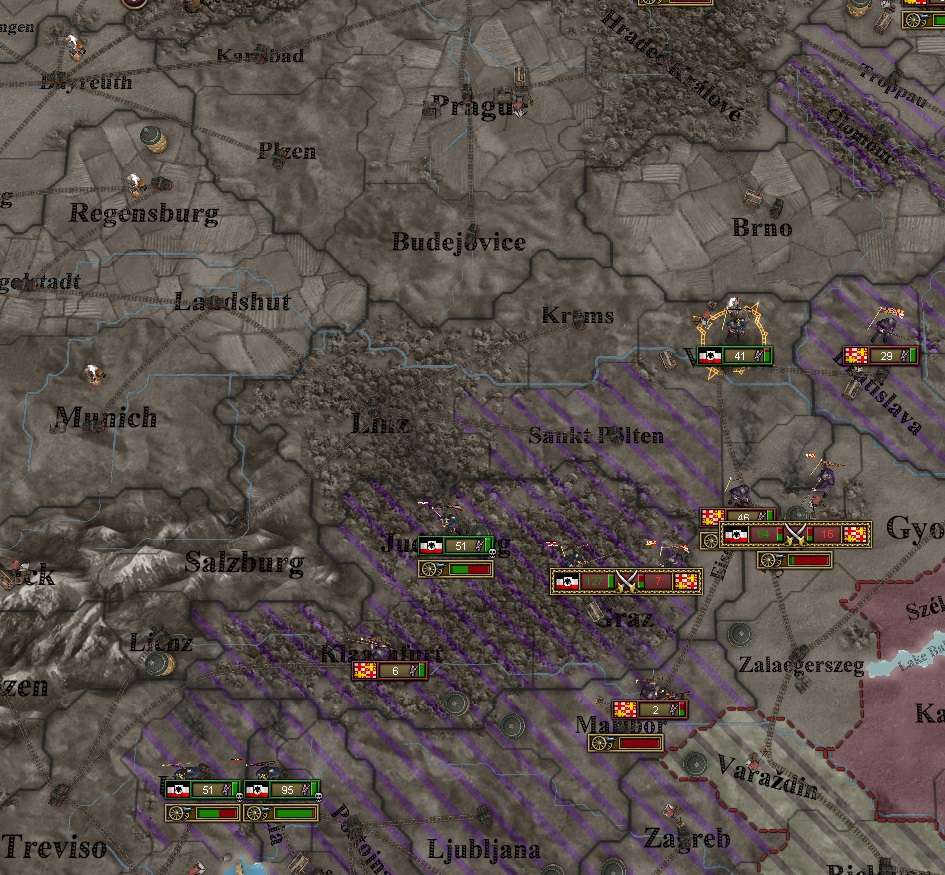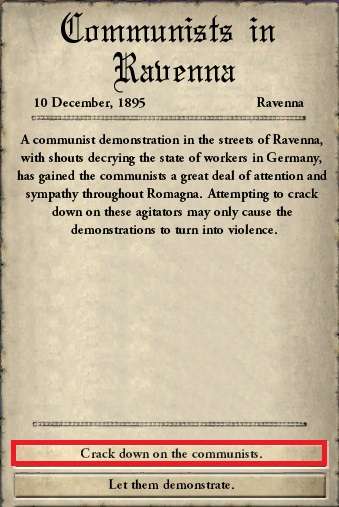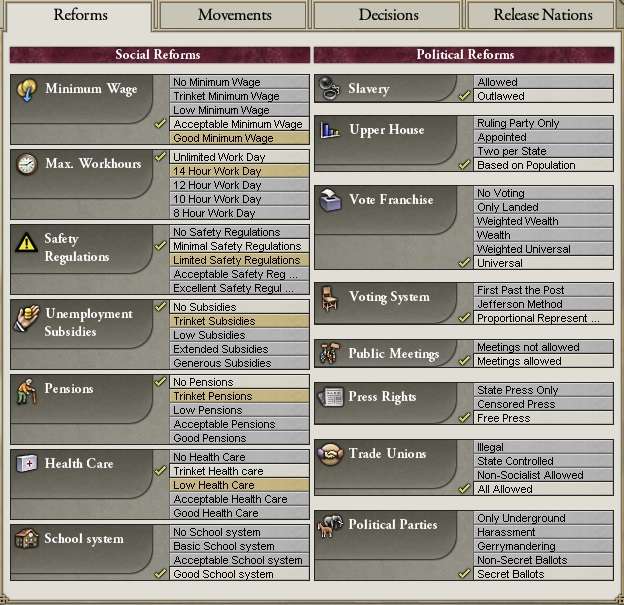1894-95: The Great War, part 1
Germany was fighting for her life in a way that she had not been in years. The British Empire, France, the Byzantine Empire, and a number of other countries were battling for European and, indeed, global supremacy. To counteract Germany's enemies, Minister of War Konrad von Schwaben called for a significant expansion of the German army: 156 brigades, or almost 500,000 troops. Fifteen new ships were also laid down, including five battleships. However, with the German militia slow to reach recruitment centers, the immediate concern was simply holding defensive positions until a counterattack could be planned. The British had no such problem, and quickly overran German positions in Africa.
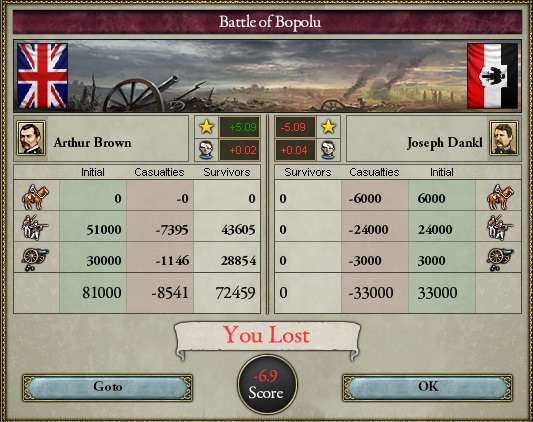
Harper native and Assemblyman Hermann von Leute was captured by the British and taken back to London. He alone cheered when a significant portion of the Royal Navy went to the bottom of the English Channel, and returned to Germany a couple of weeks later in exchange for a Royal Navy Captain. Over the course of July, German soldiers stood their ground and began pushing the French back into France, with the largest victory of the early war coming at Chalons. In the east, the Byzantines poured into southeastern Europe, easily driving out the forces sent to occupy the Balkans by Chief of the General Staff Konrad Friedrich von Hohenzollern.
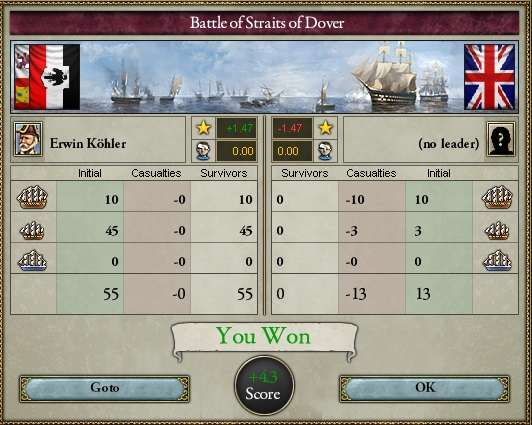
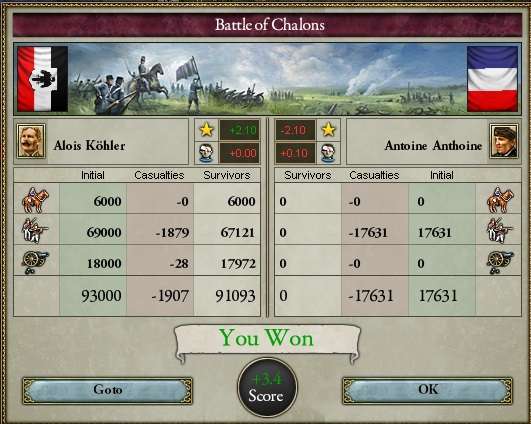
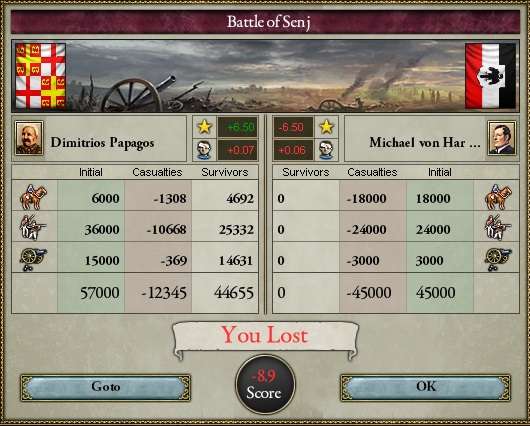
The French front settled into a real bloodletting. At the battle of Moulins, over 100,000 soldiers on both sides fell as casualties; there were roughly two German soldiers for every French soldier, but because the French left the field first, German newspapers called the battle a "Great Victory for the Great War," the first recorded use of the term "Great War". The average German did not share that position, as Minister of Finance Franz von Bavel-Timmermans announced a "war tax" for every German, rich and poor, with tax rates reaching 50% for the first time in years. In August, Foreign Minister Hubert Schaumberg issued an ultimatum to the French government, demanding a chunk of French territory in exchange for Germany ending the war. The French delegation simply laughed and returned to Paris.
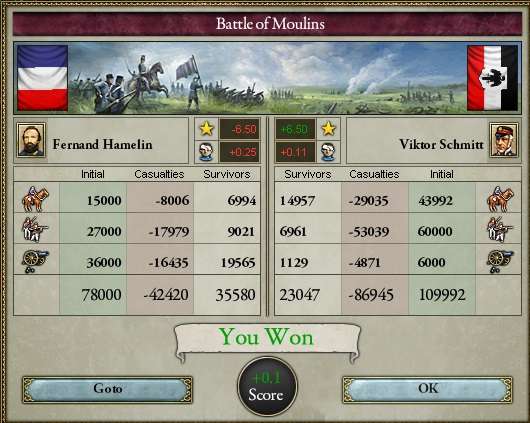

The Ministry of Education announced the first of many "victory initiatives," proclaiming that German metallurgists had developed a new, more powerful artillery barrel made out of steel. New metallurgical processes promised even greater results. These new weapons would not win the war in the immediate future, however; Africa was already a more or less lost cause, as the last few troops in Liberia surrendered to British troops. A lopsided victory at Orleans kept too much discontent from fostering in Germany proper, but in Bari, Italy, a group of Italian communists demonstrated against the futility of the war. Chairman of the KPD Clarissa Rafanelli denounced the communists as "traitors to the fatherland" and eagerly voted for the censure of those who had participated, as well as their expulsion from the party.
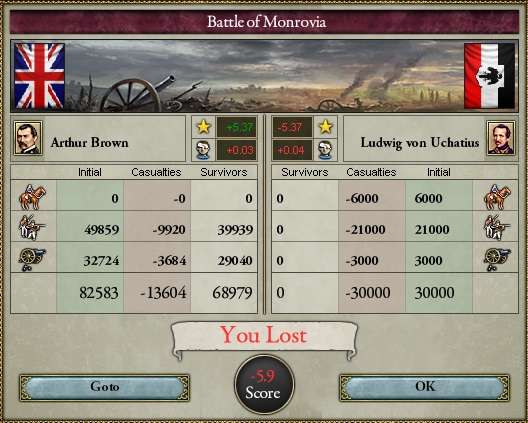
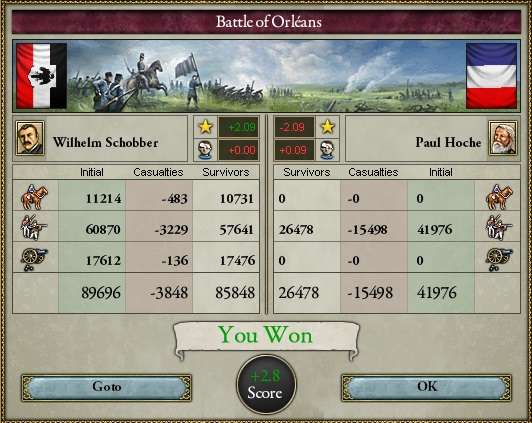

After the French fortress at Orleans also fell, the Foreign Minister, in league with many of the most prominent Conservatives and Imperialists, proclaimed Germany's superiority from every rooftop. He added weightier demands for a French surrender, including Provence, and did not spare the Byzantines from their own share of the victory costs. When the people of Syria called for German help against Hedjaz, the vote to join the war was nearly unanimous. At first, only financial support trickled southeast, but the Chief of the General Staff promised to commit German troops when the French and British had surrendered. A victory at St. Etienne was quickly overcome by the announcement that Paris had fallen on November 18, 1894. Everything appeared to be going Germany's way, with some politicians speculating that Schaumberg, who had been the most vocal proponent of war with France, had earned himself a Chancellor's seat in the next general election.
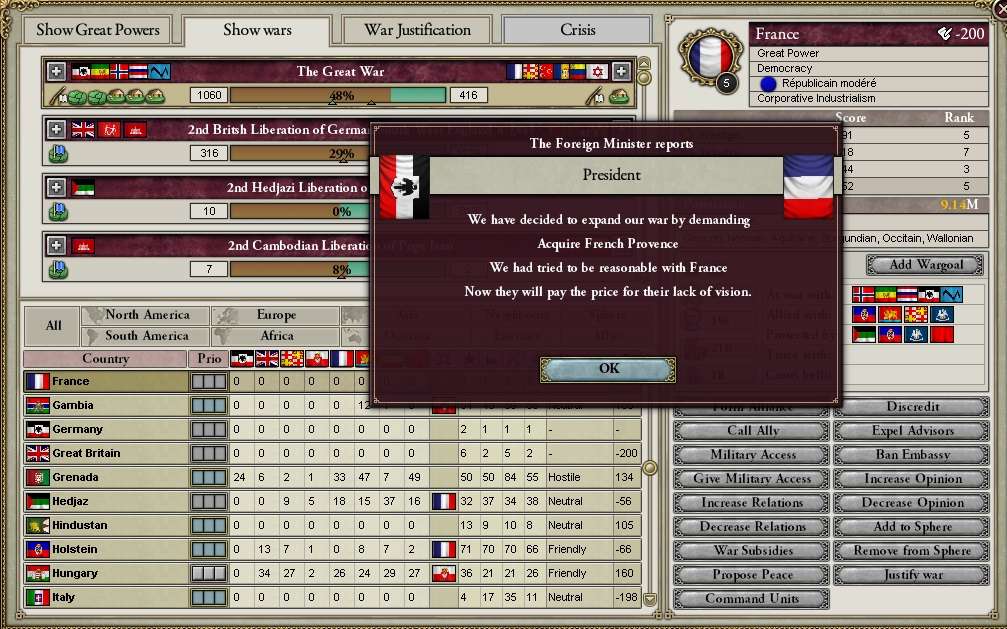
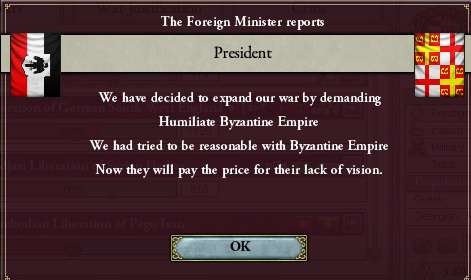
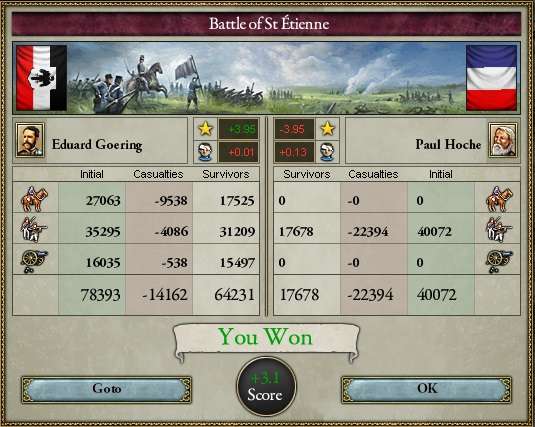

However, his political fortunes dissolved almost overnight. France did not surrender after the fall of Paris, which the Foreign Minister had confidently predicted. They kept fighting, inflicting serious casualties on German troops in France. Another victory at Orleans no longer had the same impact it once had, especially after the meat grinder of Clermont-Ferrand. Matters came to a head when a British delegation quietly demanded the return of Plymouth. Regardless of German success in Europe, British troops had taken every German post in Africa except Tunis and had held on to Plymouth for a few months. All of the most prominent German citizens had already evacuated, and a faction within the Reichstag began calling for an end to war with the British so that all of Germany's efforts could be turned toward winning the war against France. Hubert Schaumberg, President of Italy Karl Adimari, and the Chief of the General Staff all insisted on fighting to the bitter end, joined by the Imperialists. Hermann von Leute immediately called for a vote of no-confidence in the Foreign Minister. Surprisingly, Chancellor HF Gutfreund agreed with those who sought a brokered peace with the British. Stunned by what he called a "gross betrayal" and "cowardice, if not treason," the Foreign Minister had no choice but to change his position. Plymouth was surrendered to the British.
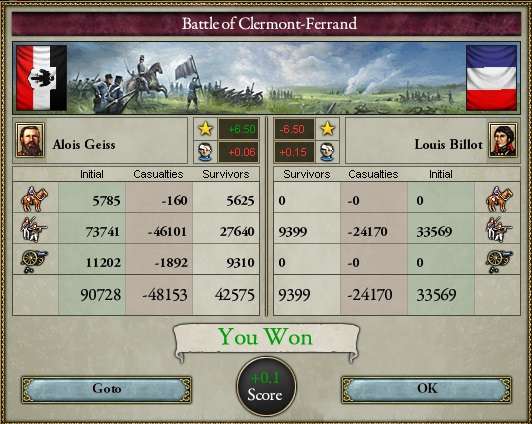
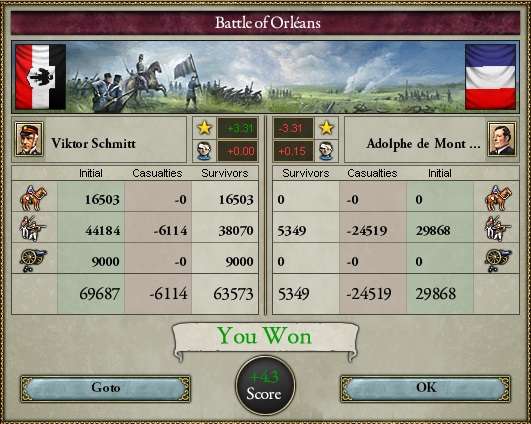
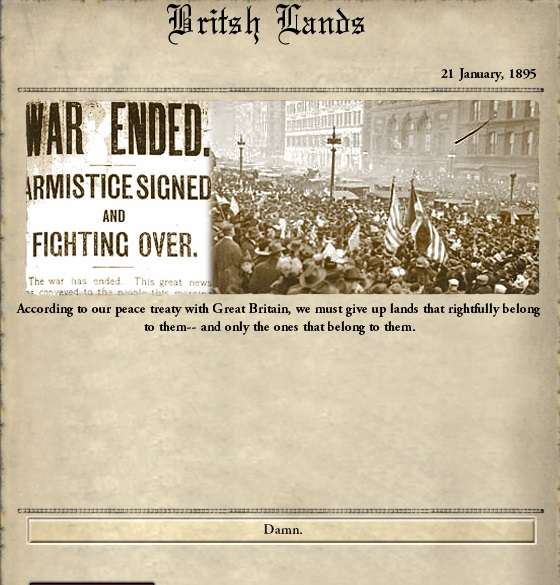
Although the Foreign Minister retained his post, his popularity plummeted. As for the German military, the end of the war with the British permitted the entire German fleet to chase down the French fleet. In a series of battles, the French fleet was completely annihilated. The Ministry of War and MInistry of Education called a joint conference at the University of Nürnberg to announce the discovery of new and exciting techniques to further remove impurities from German metal, which promised to have a significant impact on the war effort and industrial production. The Commander of the Gendarmerie, Johannes Carile, called for a parade in honor of peace in the country's capital that eased the national mood. The Byzantines, however, chose that moment to initiate a fast and brutal offensive campaign that inflicted over 150,000 casualties in two battles, including the single biggest defeat in Germany's history. Throughout Champagne, French members of the KPD called for a general strike. Again, the Gendarmerie put down the uprising, but war weariness affected every single German throughout the country.

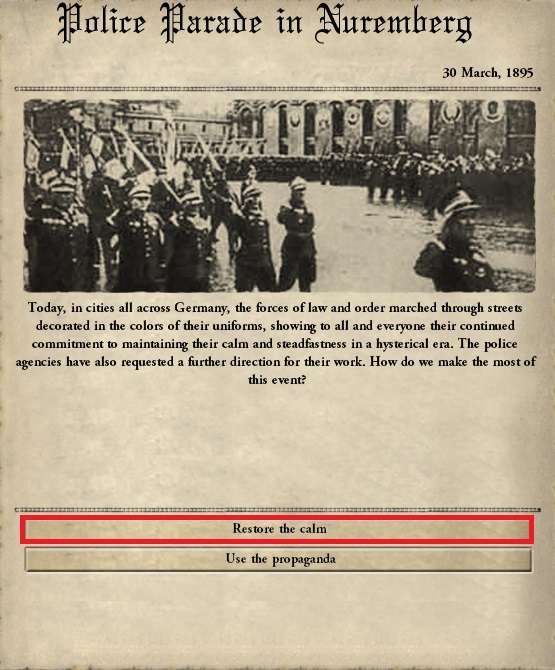
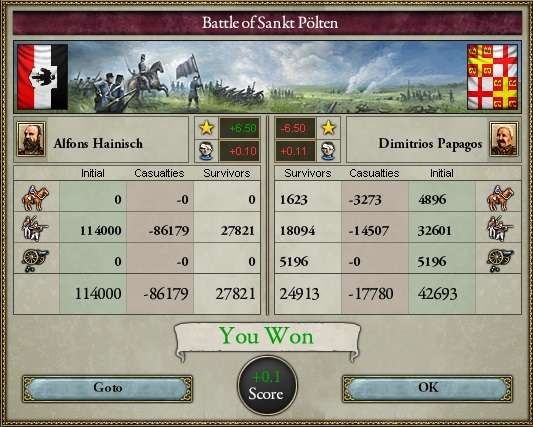

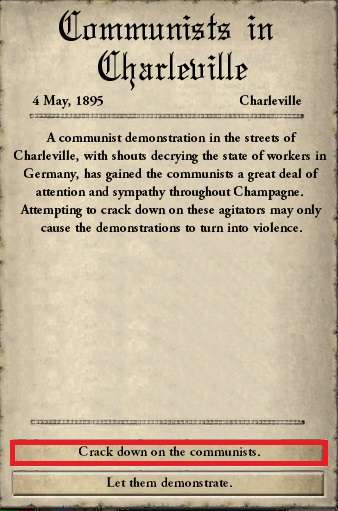
Several battles waged on throughout the months; most were German victories of one kind or another, but no victory was achieved without cost. By summer of 1895, the Byzantines had been thoroughly blunted. Their formerly vast professional armies were whittled down by German peasants equipped with the finest weapons money could buy. The battle of Kustrin was a significant German victory, and the turning point of the campaign in the east. In October, a newspaper article accused Hubert Schaumberg of membership in a Masonic lodge. While some editorials leveled outrageous allegations, suggesting that the Foreign Minister had tried to fight on against the British because of the orders of his Masonic sect, most took no notice of the incident. However, when a member of the same lodge positively identified Schaumberg as a member, the public once again reacted. Even word that the Foreign Minister
might be traveling to Rome sparked another uprising in Ravenna.
As the Reichstag gathered for the January 1, 1896 session, a junior officer in the German Army prepared a presentation for the Chief of the General Staff. Despite the hardships that Germans had endured, victory was all but assured. Every French possession in Continental Europe belonged to Germany, while in the east, hundreds of thousands of German soldiers pushed east toward Constantinople. Ethiopia, with the British distraction out of the way, was making significant strides in Africa, too.
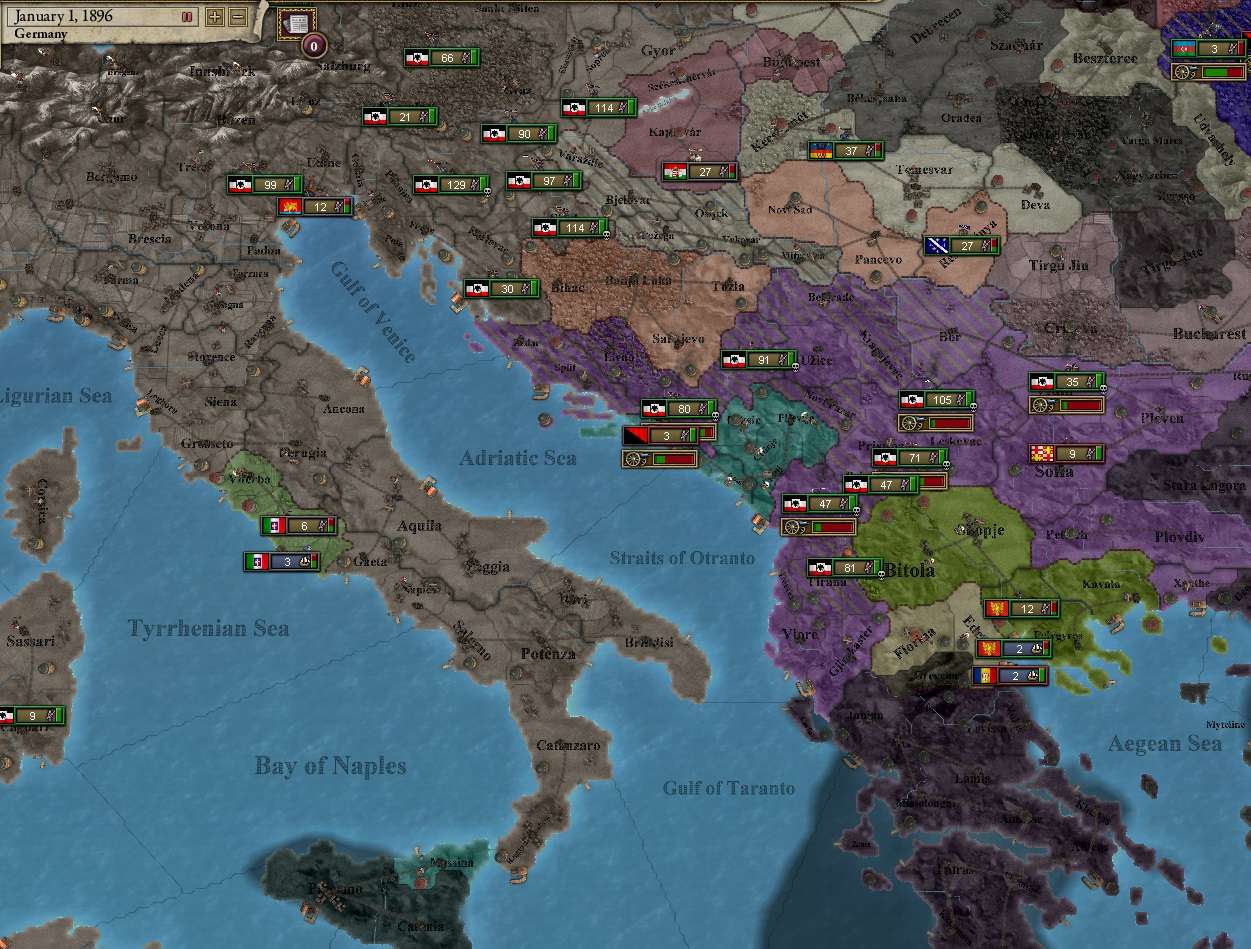
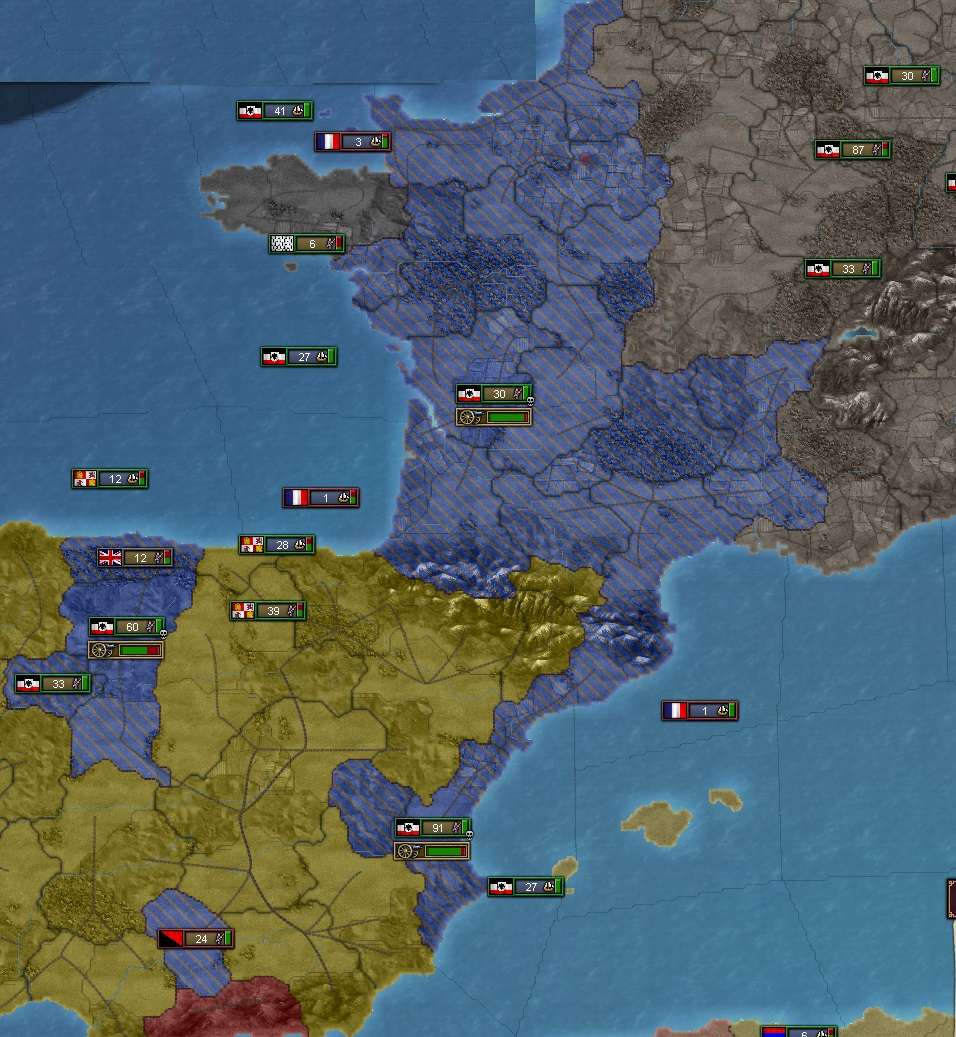


Domestically, however, there was a clear sense that a massive uprising was long overdue. The "war tax" simply could not cover the German deficit. The war had already cost over £1 million, cutting the German treasury almost in half. Axel Wouters, the Minister of the Interior, gave clear instructions to prevent any other budgetary pressures, and ordered the Corps of Gendarmerie to take care of any disruptions. As a result, a huge number of unemployed Germans were arrested for disturbing the peace, as they had taken to demonstrating for unemployment insurance. The largest concentration of armed militants were socialists, but a disturbing number of Umbrians had started to question whether the deal with Italy would ever be completed, as they longed to join with their countrymen in Rome. A rapid conclusion to the war might heal several of these wounds, but Germany's allies insisted on punishing France's coalition to the point where France prefered complete destruction to surrender. Clearly, some sort of compromise was necessary: it was up to the Foreign Ministry and the Reichstag to provide it.
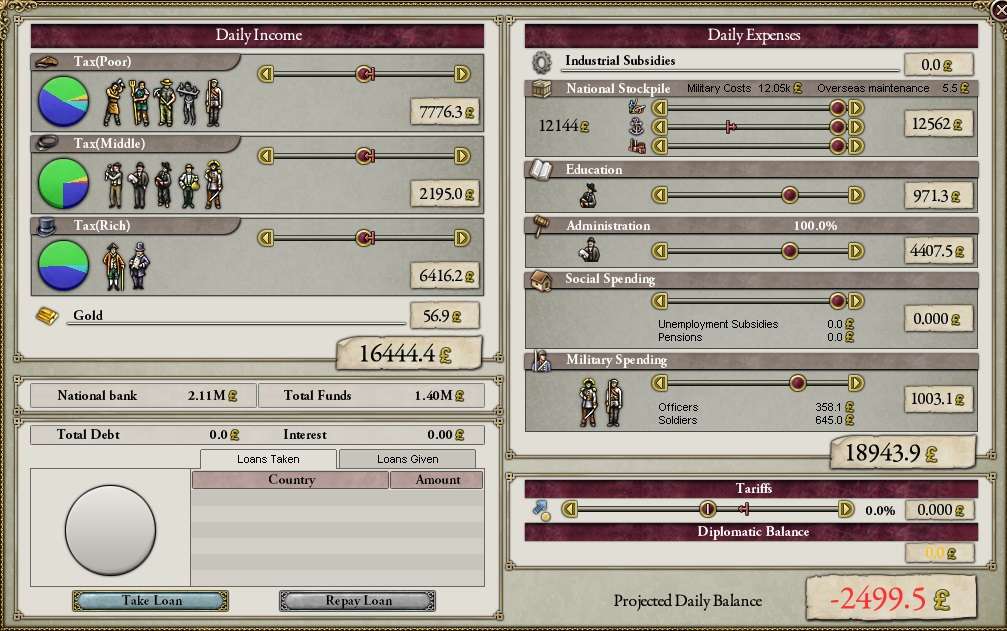
http://imageshack.com/a/img903/6135/SqNSt2.jpg
------------------------------------------------------------------------------------------------------------------------------------------
((Sorry it took so long to get to this update! Note that the movement in the picture was suppressed after I took the screenshot, so the militant socialists might actually be even larger. I'm not sure.))
The Supreme Court invites legislation and proposals from any member of the Reichstag or the Cabinet. In particular, the German people are eager for social reform, the mission to Rome's status remains unresolved, and of course there are peace talks with France.
Chief Justice of the Supreme Court





















